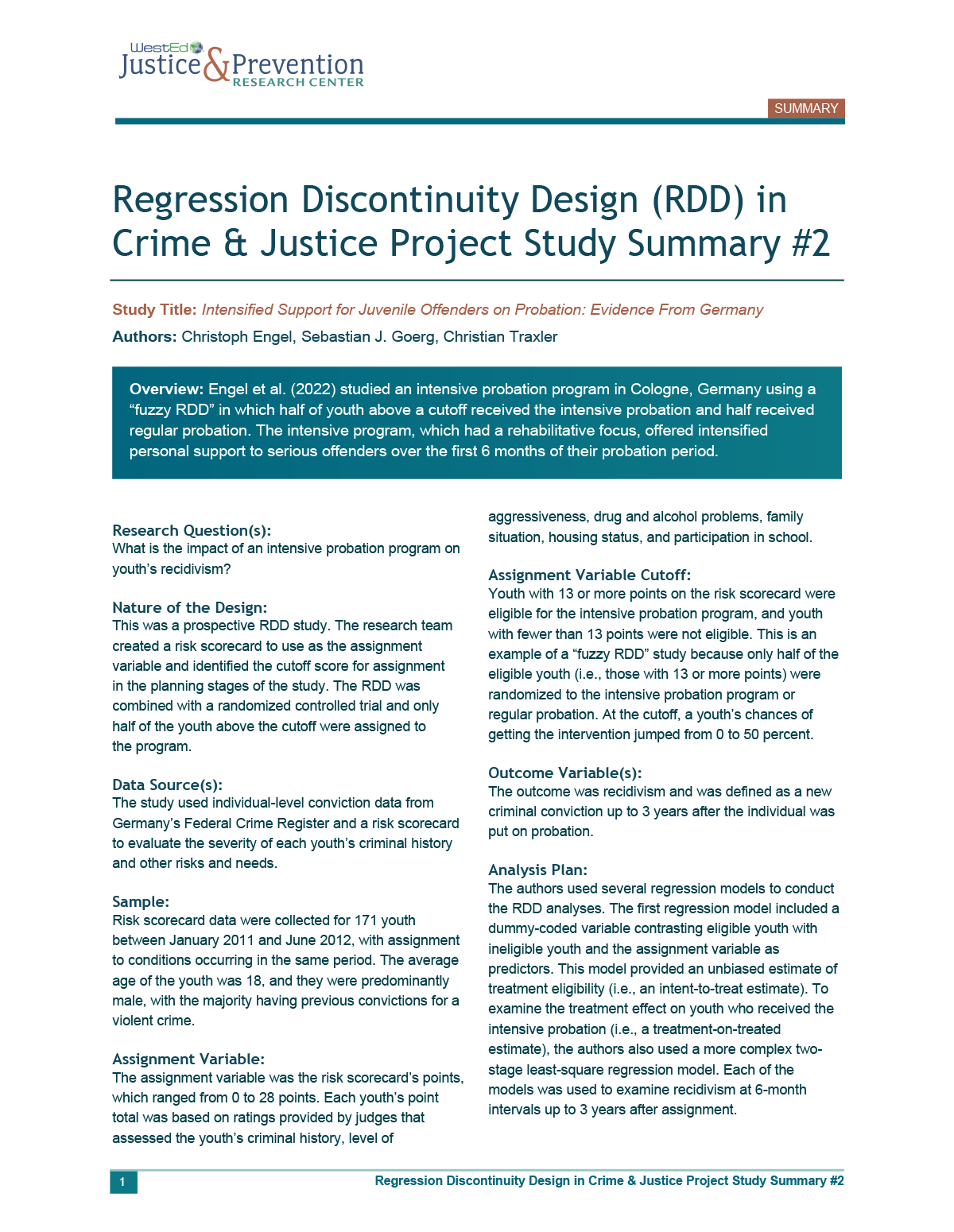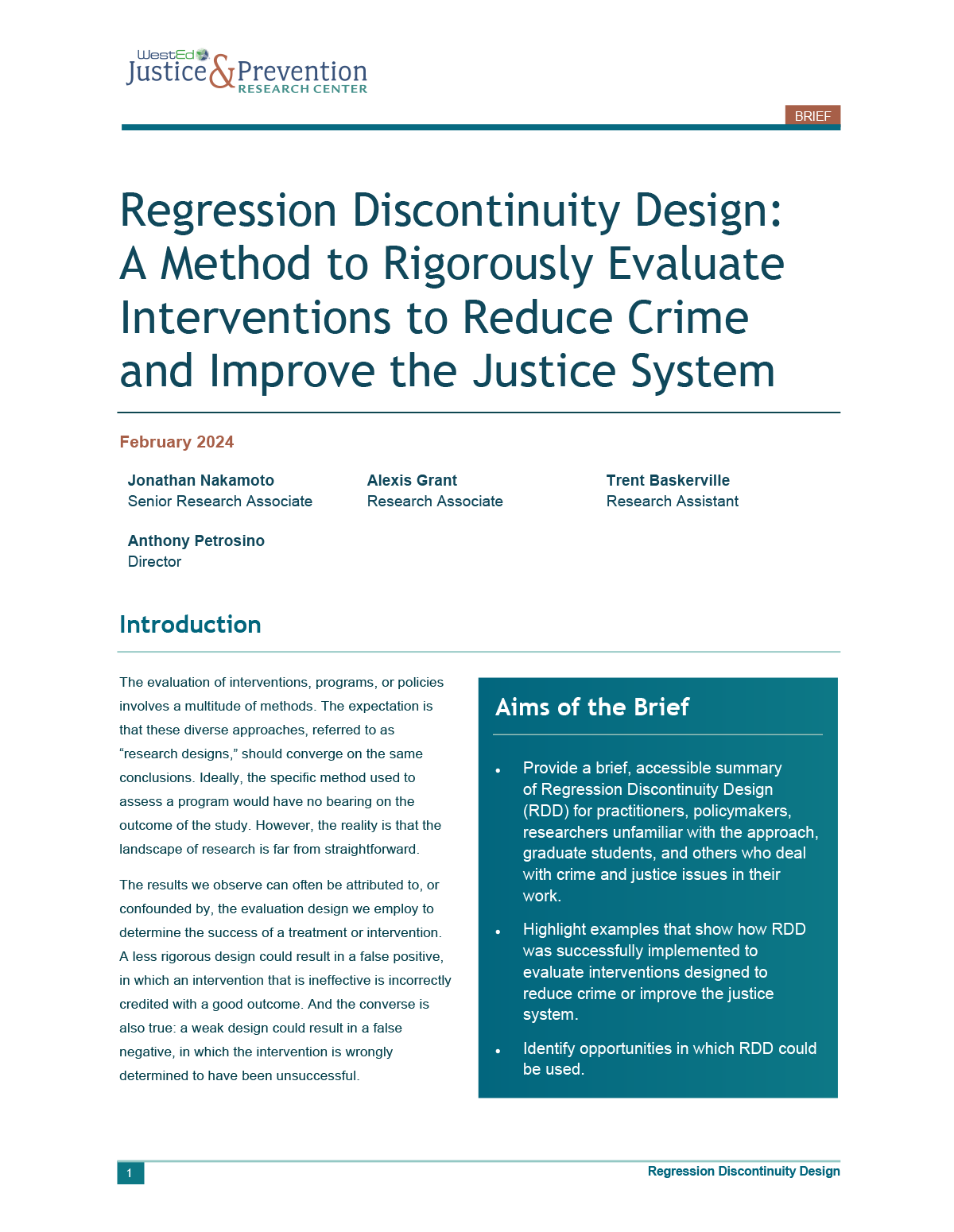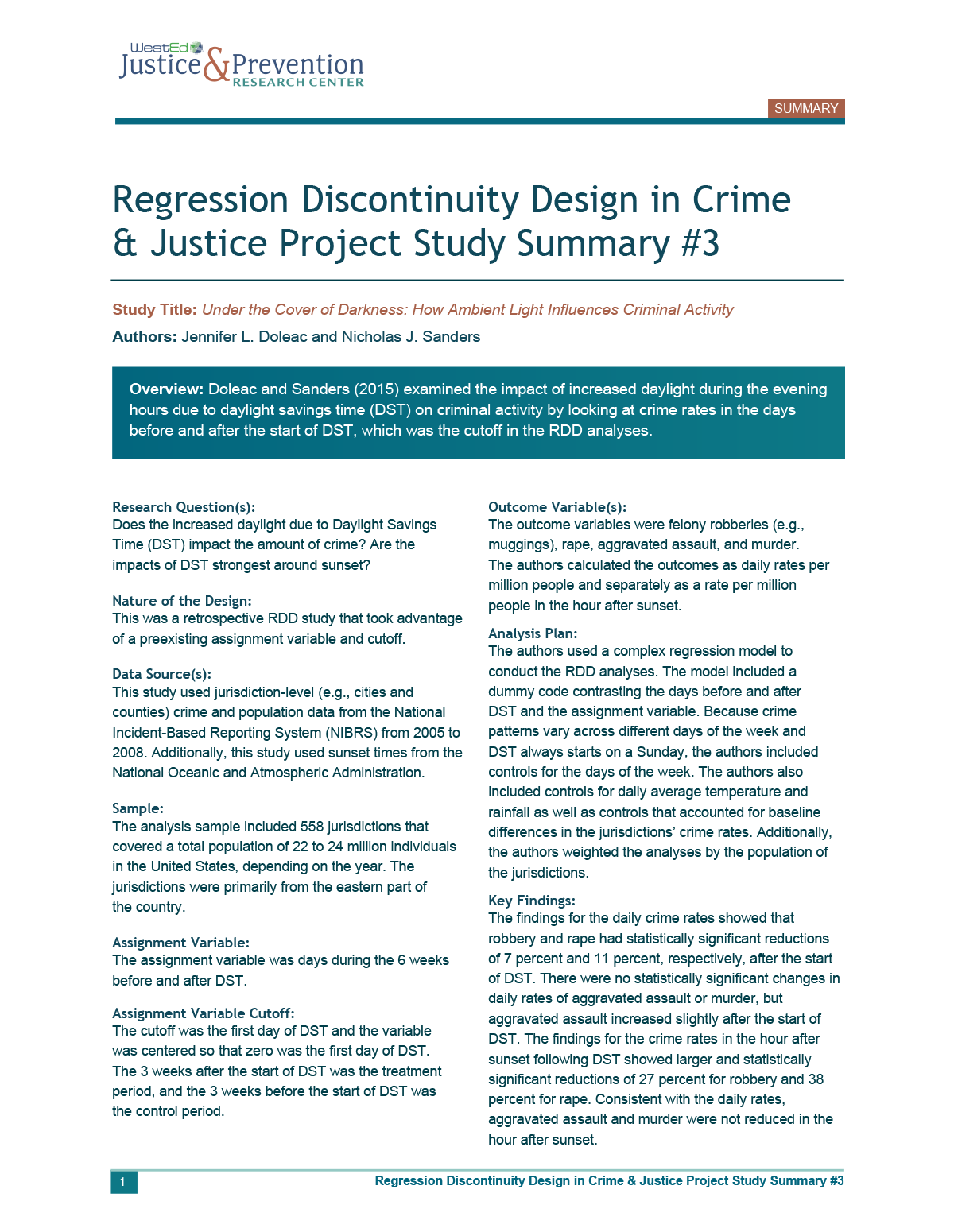Intensified Support for Juvenile Offenders on Probation: Evidence From Germany (Regression Discontinuity Design in Crime and Justice Project Study Summary #2)
Description
WestEd’s Jonathan Nakamoto and Trent Baskerville summarized this study conducted by researchers Christoph Engel, Sebastian J. Goerg, and Christian Traxler to investigate the impact of an intensive probation program on youth recidivism.
Using a prospective Regression Discontinuity Design (RDD), the study assigned half of the eligible youth above a cutoff score to receive the intensive probation program, while the other half received regular probation. The research team collected individual-level conviction data from Germany’s Federal Crime Register and used a risk scorecard to evaluate each youth’s criminal history and risks/needs.
The findings revealed that recidivism was approximately 10 percentage points lower for youth eligible for the intensive probation program after 6 months, with this difference increasing to around 30 percentage points between 1 and 3 years later. These reductions in recidivism were statistically significant for less severe offenders close to the assignment variable cutoff. Overall, the study highlights how intensified personal support and increased monitoring by probation officers can contribute to positive outcomes in reducing recidivism among juvenile offenders.
Resource Details
Product Information
Copyright: 2024Format: PDF
Pages: 2
Publisher: WestEd
Stay Connected
Subscribe to the E-Bulletin and receive regular updates on research, free resources, solutions, and job postings from WestEd.
Your download will be available after you subscribe, or choose no thanks.







